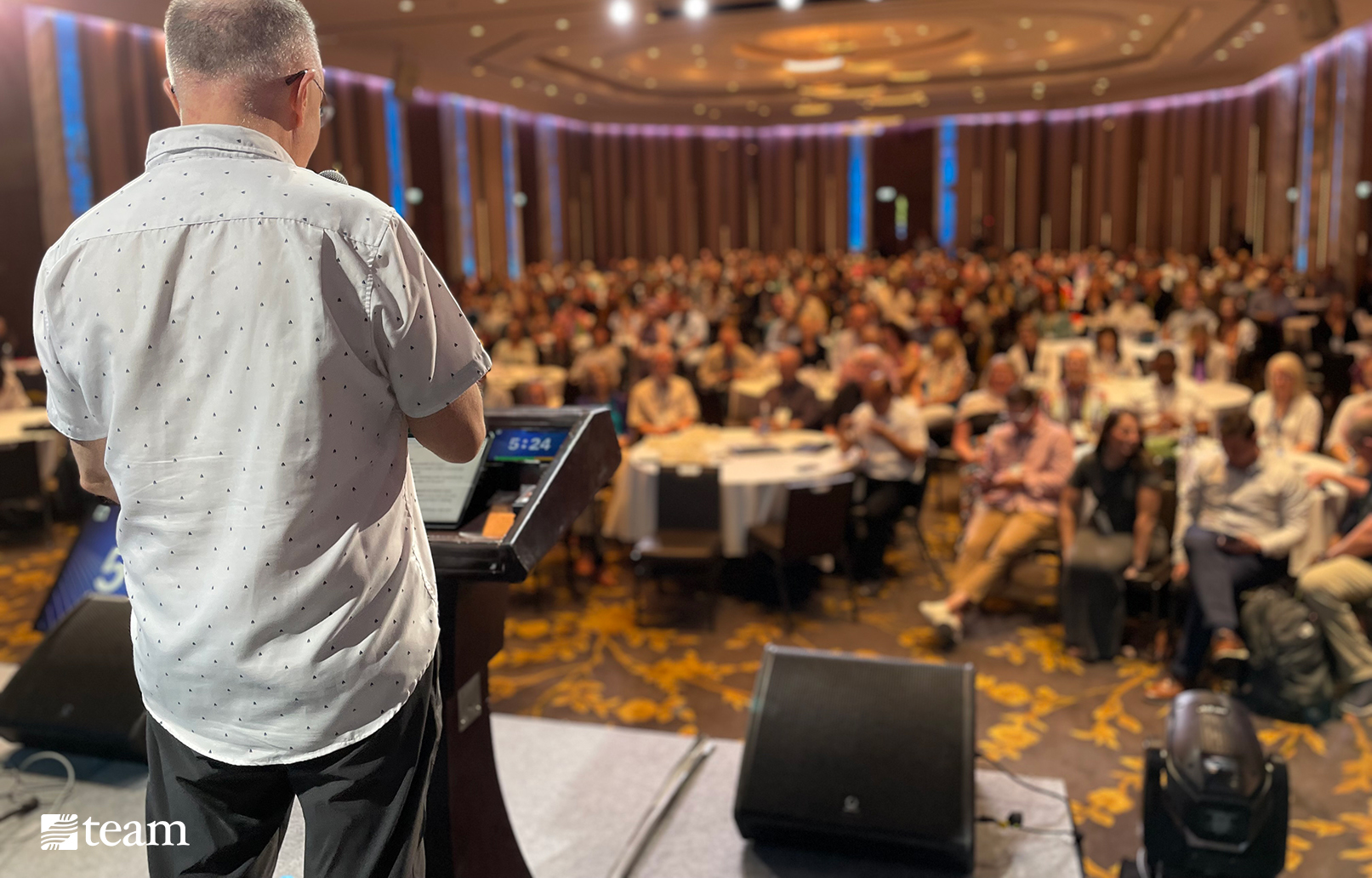
Ministry Updates
Dreams that Changed Everything: Josh and Anna’s Story
November 1, 2023
by Suzanne Pearson

Josh and Anna* grew up in “the old ways” of their remote Indo-Malay village. No electricity, no running water. No westerners or foreign ideologies to disturb centuries of an Islamic worldview. Josh’s father was an imam, as was his grandfather. Anna’s family was also devout, revered in the community for their strict and unyielding commitment to their Muslim traditions. But God had an incredible plan to bring the Good News of Jesus to an entire community and beyond through this young couple. And it all started with a pair of dreams…
A Heart Softened
Josh was 12 years old when global workers from the West first came to the village. He became friends with the couple’s son, and over the course of five years, Josh heard stories of the man they called “Jesus.” He listened intently, nodding when asked if he understood. But still he was unsure.
“There was a struggle in me,” Josh recalls. “Which is the right one – my old belief or this missionary belief in the Lord Jesus, that He only is the way, the truth, and the life?” Then one day, Josh cried to God for clarity: “Lord, show me the way. Give me a sign. If [the Gospel] is really true, please soften my heart.”
That very night, and for the next several successive nights, Josh had a dream in which he says the Lord gave him confidence and assurance in what his friend had told him – that the Gospel is true. “The dream was the answer to my prayer,” Josh recalls. “[I knew it was] the Holy Spirit that was leading me.”
Unable to contain his excitement, Josh ran to his friend’s home and knocked on the door, even though it was late at night. Josh remembers being concerned that his friend would think he was crazy! Quite the opposite, his friend cried with joy at hearing the news – Josh was the very first in his village to receive the Gospel!
“I am ready.”
Josh’s friend knew that following Christ would not be an easy road for Josh. He explained that there would be persecution from Josh’s family and community. He encouraged Josh to take three days to pray and consider the cost of truly following Jesus. Three days later, Josh returned with simple words: “I am ready.” He was baptized that day at the age of 17.
Josh finished high school and went to college. After graduating, Josh had opportunities to go to a large metropolitan city to get a good job and make a comfortable living – true signs of success. But instead, he wanted to return home to share the Gospel with his people.
“I realized my family didn’t know the Lord,” Josh shares. “It would be selfish for me to seek [material things] which are temporary and not share with them what is essential – that we have life forever. I didn’t want only myself to have eternal life. I wanted them to have eternal life, too.”
So Josh returned home to begin the slow but steady journey of introducing his family and community to the life-changing truth of the Bible. And over time, the Lord was faithful! “It began with me,” Josh shares with a smile, “and then my brother, my sister, my father, my mother, then our neighbors. And today, including children there are over a hundred [believers in the village.]”
Several years later, God opened the door for Josh to partner with western churches and missions organizations, enabling him to expand his reach to other communities in the Indo-Malay region. No longer isolated in a remote village, Josh is a veritable force for the Gospel and has no intention of stopping. “I want to be productive in God’s kingdom as long as I live.”

As the first believer in a village now home to over 100 Christians, Josh serves as an example to other near-culture workers serving in Indo-Malay.
A Wife and A Spy
One of Josh’s early disciples did not come to Christ easily. Anna’s devout Muslim family arranged her marriage to Josh with both sides believing that their union would turn Josh away from Christianity and back to his Muslim roots. When describing what it’s like to grow up in the Muslim faith, Anna draws an interesting analogy. A young person is like water, and his or her family is like a container that holds the water. “They shape you and tell you where to go,” she says. “You don’t have a choice in that.”
Anna believed that she, along with the pressure of their families, could convince Josh to return to Islam. Once married, Anna often instigated arguments with Josh about his reading of the Bible and other books about Christianity. She regularly reported to her family how the situation was going. “I became like a spy,” Anna remembers. “A wife and a spy.”
Still, Josh was unwavering. “He was so strong. That’s what I hated the most,” Anna says. Over time, Anna felt she could not go on in a marriage to someone whose faith was so different from hers, and she considered divorce.
“Will you please open your book?”
Then one night, Josh and Anna had a particularly heated argument. She recalls hitting Josh and yelling at him, but he stayed calm and refused to fight back. He walked away and went to bed as though nothing had happened.
Anna grows solemn and quiet as she remembers what happened next. “That evening, I saw his Bible, and I had hatred in my heart about [him] being a Christian. I wanted to throw all his books.
“I fell asleep and had a dream that I saw a big book, lit only by candlelight. And I saw a hand, opening a page without touching it – like magic. The pages stopped turning at 2 Chronicles 15:2, and I saw the words printed there: ‘When you seek the Lord, he will be found by you, but if you forsake him, he will forsake you.’
“I woke up…and my heart was fighting in me. Should I ask my husband, or should I stay silent?”
Anna goes on to share something that makes her story even more remarkable – when she had this dream, she knew nothing about the Bible. “I had never touched it. I didn’t know what’s in the Bible, or any of the books of the Bible.” And yet she clearly knew the reference she had seen – 2 Chronicles 15:2 and remembered word-for-word what it said.
Despite her pride telling her to be silent, Anna woke up her husband. “I said ‘Will you please open your book?’”
Josh opened his Bible – the same one that only hours earlier Anna had wanted to throw across the room in anger – and showed her 2 Chronicles 15:2. “It was amazing. That was the awakening moment for me,” says Anna. “I felt near to God. He was already there, I just had not let Him in.”
To the Next Generation
Over time, Josh and Anna’s relationship has healed and grown into a beautiful example of Biblical marriage. Josh has a contagious laugh that endears him to everyone he meets. Anna’s sweetness and gentle demeanor leave no trace of the quarrelsome spirit she remembers warring within her. Together, Josh and Anna work tirelessly to bring the hope of the Gospel to new generations of house churches as well as to the next generation in their own home.
Now raising two beautiful preteen daughters, the couple is starting new faith traditions of their own. The family shares daily devotions, opening God’s Word together as they continue to walk with Him in a region that is still less than 1% Christian. “In our family, we need to have a strong foundation so that wherever my kids are or wherever we are, we are strong enough to face any circumstances.”
*names changed for security reasons


